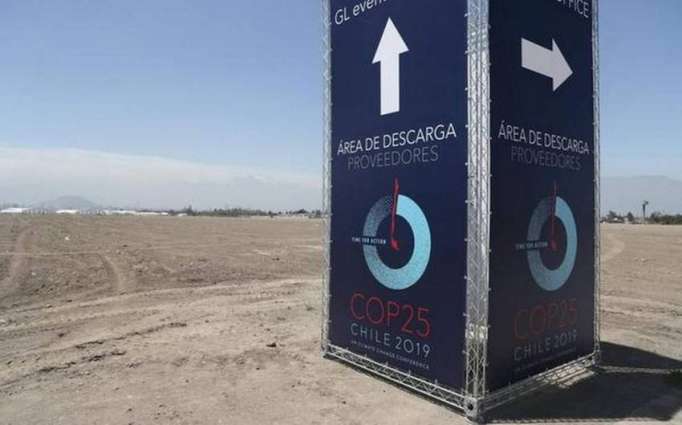The spread of diseases, famine and "mass" migration are among consequences that people in Papua New Guinea (PNG) face as leaders at the UN Climate Change Conference (COP25) cannot come to an agreement, Christian Lohberger, an adviser for the PNG's Climate Change and Development Authority, told Sputnik
MADRID (Pakistan Point News / Sputnik - 13th December, 2019) The spread of diseases, famine and "mass" migration are among consequences that people in Papua New Guinea (PNG) face as leaders at the UN Climate Change Conference (COP25) cannot come to an agreement, Christian Lohberger, an adviser for the PNG's Climate Change and Development Authority, told Sputnik.The two-week COP25 summit in Madrid enters its final day on Friday. The major focus has been to forge a new carbon trading system, which proved to be the hardest part of the Paris climate deal and the one that was not agreed on in a rulebook for the accord implementation at COP24 in Poland.
"We have serious concerns with the sea level rise; we have some provincial islands in the outskirts, the Carteret islands. We have already seen climate refugees there as the sea comes and swamps their food gardens in their living areas. That's a big problem. We also have a big problem with disease vector changing, because temperature warms, we have mosquitos coming into new areas, where they haven't been before," Lohberger, who is also the president of the PNG's Solar Energy Association, said.
The country, in particular, sees "expansion" of malaria, dengue fever, other diseases, he added.
In the last few years, the PNG has also suffered several serious droughts, which is "considerable worry, because most of the population are subsistence farmers, they grow their own food, and with this droughts we have big problems with famine and mass migration," Lohberger explained.
According to the PNG climate expert, it would be great progress if COP25 participants managed to come up with a regulatory framework for a global carbon trading system, a complex issue that falls under Article 6 of the Paris Agreement.
"This [agreement on a carbon trading system] would be a good step forward. But it's really an open question if that's going to happen or not. This is crucial, we need to make a benefit taking carbon out of the atmosphere and reducing the carbon levels. We need to see much more serious action from all of the countries. Really there are only two countries at the moment doing anything close to what's required, that's Costa Rica and New Zealand. All the big countries, all the developed countries, all of the continents - no one is doing enough," he said.
Yet, Article 6 has been "extremely tricky" issue, with the negotiation teams being "in trenches trying to get it passed," Lohberger went on.
"There are a lot of different clauses, there is much discussion around article 6.2 and article 6.4, which have to do with human rights, losses and damages and sharing of the profits. When you start to introduce benefits, profit, making money and losing money then it gets very complicated. Everyone starts to have a big stake in it and it's hard to resolve," he stated.
The expert, however, warned that it was "really urgent" to start taking action now since projects related to energy and infrastructure took years to implement, meaning that "we won't see benefits for another 5 or 10 years."




